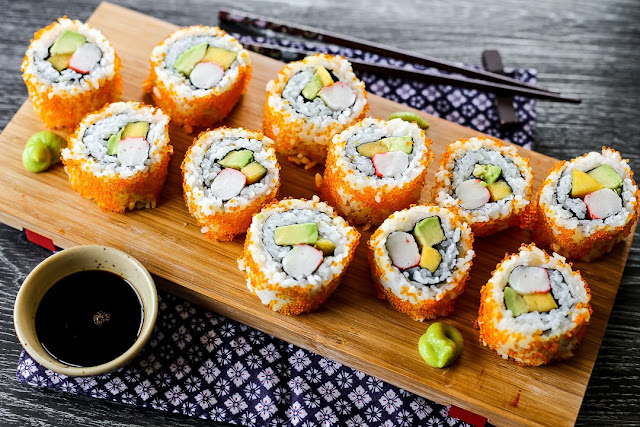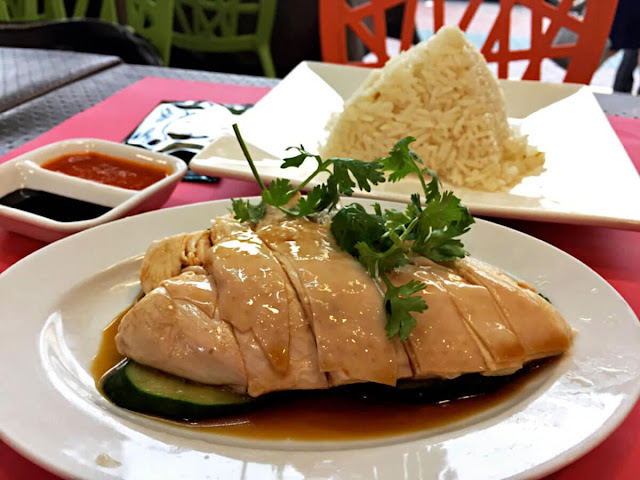Eat the freshest sushi in town at Toyosu Fish Market
Tokyo is famous for its superb sushi, and one of the best places to get your hands on some is the Toyosu Fish Market. In 2018, the world-famous Tsukiji Fish Market relocated to Toyosu, and the latter is now the place to enjoy the renowned daily tuna auction. You can still visit Tsukiji, though, where the historic outer market’s food stalls and restaurants remain in business.Roar at an authentic sumo wrestling match
Head on over to Ryōgoku Kokugikan, an indoor sumo stadium and get yourself a ticket to catch an actual sumo match! You would think there is nothing much to well-built man pushing each other around, but it is actually pretty exciting!And if you really want to experience the whole package – the roaring crowd, the energised atmosphere, and possibly the throwing of cushions after a particularly exciting match – then Friday and Saturday evenings would be the best bet for you.
Experience the High-Tech Entertainment at Robot Restaurant
Robot Restaurant is a crazy and entertaining spots to see the robot show while dining. The 10 billion yen worth restaurant is located in Shinjuku area, the biggest red light district in Tokyo often called “the districts never sleeps”. Out of hundreds of night-out spots in the area, the Robot Restaurant absolutely stands out as it is totally unique, and something you can never find anywhere on earth.Take in old-fashioned Yanaka Ginza Shitamachi
Historically, the shitamachi (low city) was where the less affluent worked and lived. Today, few places remain in Tokyo where you can experience the old world, but with its ramshackle, frozen-in-time atmosphere, Yanaka Ginza shopping district is one of them. The Yuyake Dandan staircase is a good place to snap a few photos to capture the vibes. There’s also a sizeable population of adorable stray cats in the area.Visit TeamLab Borderless Digital Art Museum
The digital art museum TeamLab Borderless is one of the most Instagrammable things to do in Tokyo. But this unusual interactive museum is well worth visiting even if you are not planning to take the perfect photo.There is no map as the discovery is part of the fun, you wander down dark corridors and choose doors at random to explore the immersive displays that use lights and projections in creative ways.
Dine at Cute and Crazy Kawaii Monster Cafe
One of the most popular places to dine in Tokyo, Kawaii Monster Cafe is a super colourful and Kawaii café or restaurant located in the center of the pop culture, Harajuku area, Tokyo. Kawaii Monster Cafe, which is designed by the famous art designer, Sebastian Masuda, has the vivid and edgy interior and serves various unique and colourful dishes including rainbow spaghetti and unicorn coloured par fait. Kawaii Monster Cafe is an extremely cute, entertaining and 100% photo-worthy place to dine in Tokyo! Please make sure to reserve your seat before visiting.Read more: Visit 6 best food markets in Tokyo, Japan
Source Internet






































